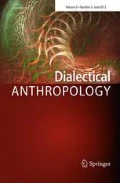Notes
The Lausanne Treaty specified the Armenian, Greek and Jewish communities as the only minorities in Turkey. The Kurds were not given a minority status and were included into the Turkish Republic on the basis of their shared Islamic identity. Hence, while minority communities have access to education in their own language, even if with several limitations and under state surveillance, the Kurds were denied the right to mother tongue education and to use Kurdish in other spheres of public life.
Author information
Authors and Affiliations
Corresponding author
Additional information
I am deeply thankful to Hisyar Ozsoy for his invaluable constructive feedback and editorial suggestions.
Rights and permissions
About this article
Cite this article
Derince, M.Ş. A break or continuity? Turkey’s politics of Kurdish language in the new millennium. Dialect Anthropol 37, 145–152 (2013). https://doi.org/10.1007/s10624-013-9303-4
Published:
Issue Date:
DOI: https://doi.org/10.1007/s10624-013-9303-4

